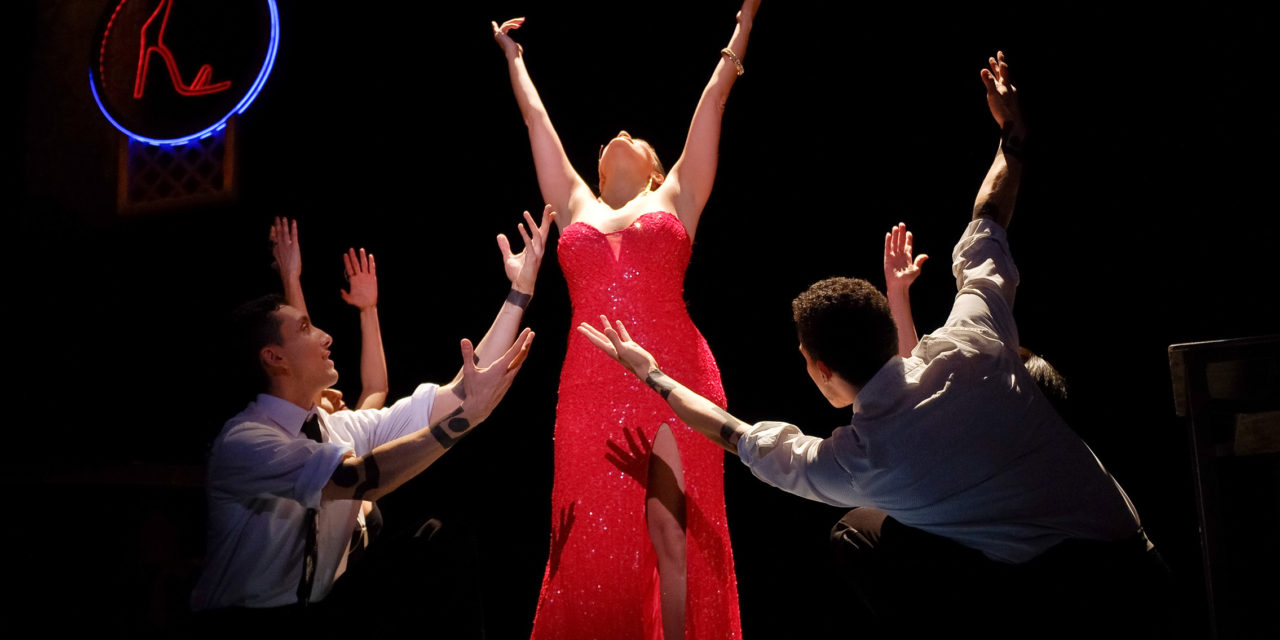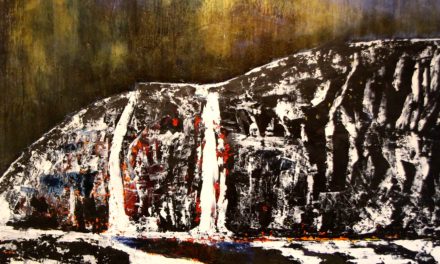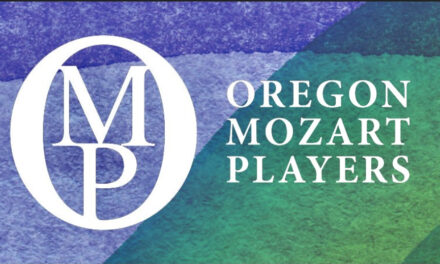(Above: Catalina Cuervo stars in María de Buenos Aires, a breathtaking combination of opera and dance, on the Eugene Opera Stage; photos by Paul Carter)
By Randi Bjornstad
This is not really a review — I generally believe in keeping “news” and “reviews” separate, with me sticking to the “news” side.
However, given that Eugene Opera’s latest production, María de Buenos Aires, has sold out both its May 4 and May 6 performances ahead of time, it seems appropriate to say a little about this out-of-the-box approach to opera, and also to give a little update about the health of an opera company that was on the ropes not much over a year ago.
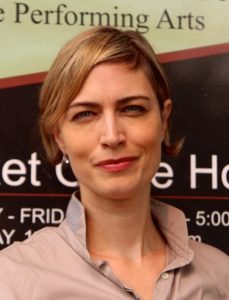
Erika Rauer is Eugene Opera’s executive director (Photo by Randi Bjornstad)
In fact, when she took to the stage on May 4 to introduce the evening’s performance and thank the sponsors who made it happen, Eugene Opera’s executive director Erika Rauer was bubbling over with good news to share.
Earlier this year, the opera company embarked on a $50,000 fundraising challenge from two sets of donors who said if the community would kick in the same amount, they would match it, Rauer told the crowd.
The deadline for the challenge is June 30, “and at this point, we are within (about $6,000) of the goal,” she said.
Rauer also reminded operagoers that “tickets cover only about 30 percent of the price of a production,” so additional financial tax-deductible contributions make a huge difference to the opera company’s budget.
People who make those donations “subsidize the cost of everyone’s opera tickets,” she said.
Eugene Opera’s financial situation now, at the end of its 2017-18 season, is a big change from what it was a year ago. Back then, the opera had cancelled the second half of its four-production season, including a planned production of Leonard Bernstein’s “West Side Story,” while facing a debt of $165,000, much of it owed to performers and local vendors.
The opera’s board of directors took a hard look at the situation and made several hard decisions, including replacing longtime executive director Mark Beudert, who had shuttled for years between Eugene and Notre Dame University, where he taught opera, with a “live-in” executive director to keep a day-to-day finger on the pulse and an eye on the overall health of the opera company.
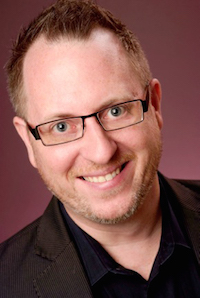
Conductor Andrew Bisantz also serves as artistic director of Eugene Opera; photo courtesy of Eugene Opera
Rauer, who won the job — and since then high marks for her efforts — celebrates her first anniversary on the job in September.
The opera board also rolled back its season to two performances — one at New Year’s Eve in the large Silva Concert Hall and a spring show in the smaller Soreng Theater — instead of the three or four offerings that had been tried with less than stellar results in a couple of recent seasons.
And, the board expanded longtime conductor Andrew Bisantz’s role to include the duties of artistic director, forging a day-to-day working relationship with Rauer, whether in person in Eugene, from his home base in Florida, or during his many travels to conduct orchestras throughout the United States.
What a difference a year makes. The successful conclusion of the $50,000 challenge will mean Eugene Opera will go into its 2018-19 season not only profitably, but also “with a comfortable reserve toward our next season,” Rauer said.
Two sold-out performances of María de Buenos Aires seem to indicate that Eugene Opera is on the right track.
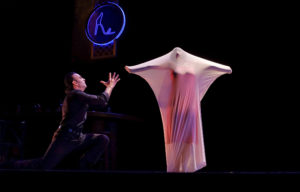
Baritone Paul La Rosa, in the role of payador, sings in 10-line verses as he tells of the death of the prostitute María; her character is portrayed in a shroud
With music by Argentinian composer Ánton Piazzolla and story by Uruguayan writer Horacio Ferrer, María is sultry and emotionally intense, fully immersed in the sensual and perfectly articulated tango dancing that are synonymous with Argentina.
In addition, Eugene Opera engaged Colombian singer Catalina Cuervo, who with her rich soprano voice and striking features has made the role her signature part, to sing María, and the powerful American baritone, Paul La Rosa, to take the part of El Payador, who tells her story.
They are joined by Argentine-born Milton Loayza, whose poetic delivery is at once appealing and chilling as El Duende, a spirit who exercises control in both the corporeal and supernatural worlds.
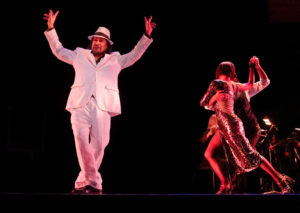
Milton Loayza tells the story of the doomed María as dancers Fernanda Ghi and Guillermo Merlo add the intensity of tango to the story
An amazing addition to the cast of Eugene Opera’s María de Buenos Aires is the duo of Fernanda Ghi and Guillermo Merlo, world-renowned tango dancers whose brilliant technical prowess, combined with smouldering gazes and physical intensity, hold the audience spellbound.
Ghi also choreographed the production, which includes local dancers Gustavo Ramirez and Jim Ballard, “borrowed” from Ballet Fantastique, as well as Deanna Murphy and Marisela Rizik. The costumes, coordinated by Claudia Cooper, are fabulous.
David Lefkowich directed the show. Conductor Andrew Bisantz also played the piano part, with Cameron O’Connor on guitar and Ben Thomas on bandoneón, a type of concertina intimately associated with tango.
At the end of the performance, many in the audience leapt to their feet in an extended expression of appreciation for the show.
Eugene Opera’s 2018-19 season will follow the same format as this year’s, starting out with a classic comedy at New Year’s, followed in May by a modern chamber opera with a more serious, contemporary theme.
The New Year’s weekend offering will be Gilbert and Sullivan’s perennially popular HMS Pinafore, and the chamber opera in May 2019 will be One, the story of a transgender woman’s gradual realization of her true identity as she grows up, leaves home and becomes Hannah, her true self. The parts of Hannah are sung initially by a male, and then by a female, singer.
One is composed by Laura Kaminsky with libretto by Mark Campbell and Kimberly Reed.
Information: eugeneopera.com or 541-485-3985
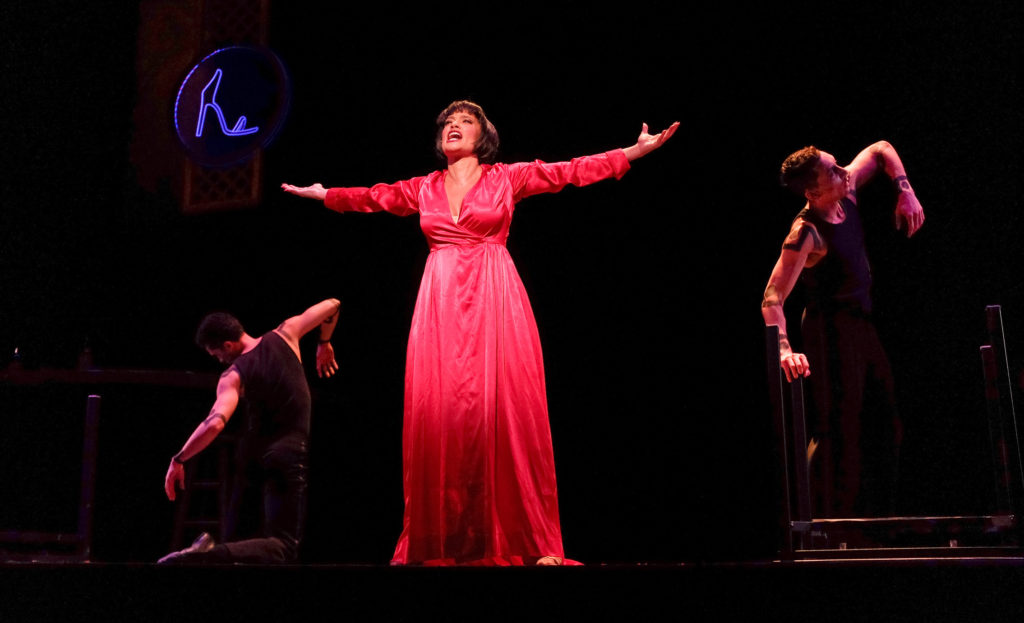
Catalina Cuervo, a native of Colombia, has made the character of María her own in the opera world; Cuervo has performed the part more often than any other opera singer

